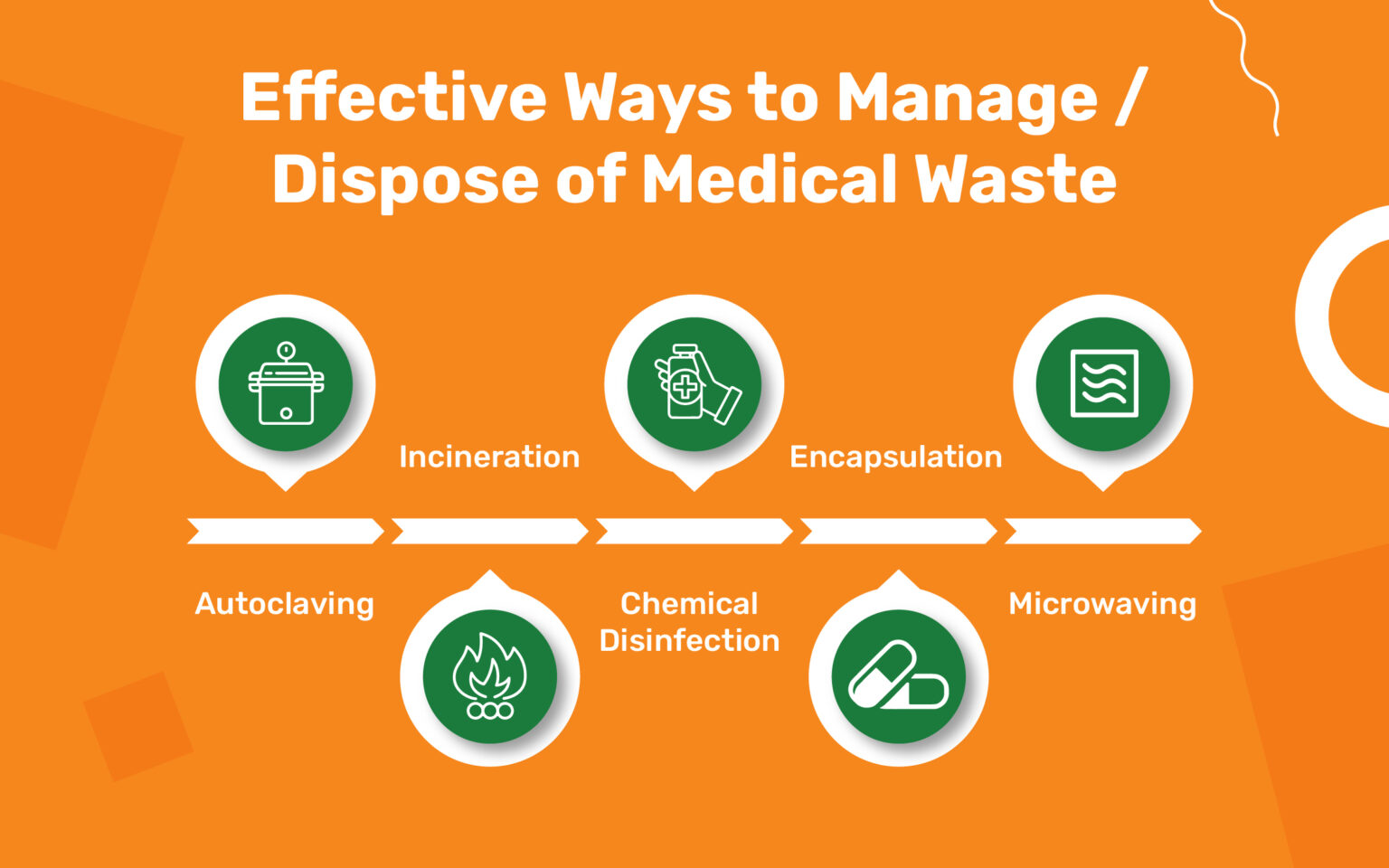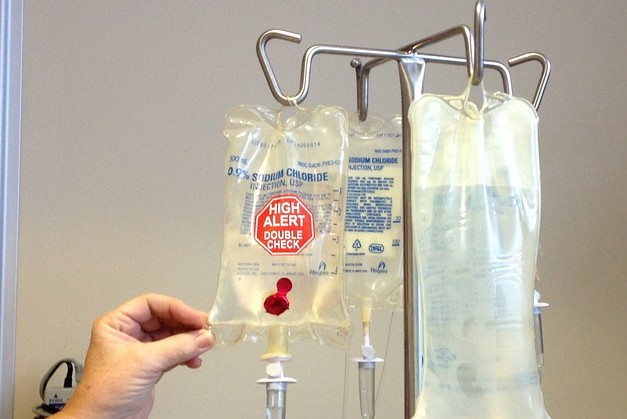Safeguarding Wellness: Expert Medical Waste Removal Services for a Clean Atmosphere
Safeguarding Wellness: Expert Medical Waste Removal Services for a Clean Atmosphere
Blog Article
The Importance of Correct Clinical Garbage Disposal: An Overview for Healthcare Facilities
Proper clinical garbage disposal is a crucial element of health care facility management, making certain the safety and security and health of people, personnel, and the environment. From understanding the different categories of clinical waste to adhering to governing requirements, health care facilities must take on effective waste segregation methods and select ideal disposal methods. Nonetheless, the importance of appropriate medical garbage disposal goes beyond simple compliance; it is an obligation that calls for recurring training and education for personnel. In this overview, we will explore the numerous facets of clinical waste disposal and highlight the important steps that healthcare centers need to take. By implementing these methods, healthcare facilities can reduce risks, protect public health, and add to a cleaner, more secure environment.
Recognizing Medical Waste Categories
Recognizing clinical waste categories is critical for correct disposal in health care facilities. Clinical waste is a broad term that incorporates various kinds of waste produced in medical care settings, such as medical facilities, facilities, and research laboratories. Classifying medical waste assists make sure that it is dealt with, stored, and disposed of safely and according to appropriate laws.
There are numerous groups of clinical waste that health care facilities require to be knowledgeable about. These classifications consist of infectious waste, sharps waste, pharmaceutical waste, chemical waste, and radioactive waste (medical waste disposal services with WasteX). Each category has particular characteristics and needs different disposal methods to reduce the danger of injury to medical care employees, individuals, and the setting
Contagious waste, for instance, refers to squander polluted with potentially transmittable products, such as blood, body liquids, and tissues. Pharmaceutical waste is composed of run out or unused drugs, while chemical waste consists of unsafe chemicals used in medical treatments.
Conformity With Regulatory Requirements
Medical care facilities need to ensure compliance with regulative needs for appropriate medical waste disposal. Regulative bodies, such as the Environmental Defense Agency (EPA) and the Occupational Security and Health Management (OSHA), have actually established guidelines and laws to guard public health and wellness and the environment. These regulations detail the correct handling, storage, transportation, and disposal of clinical waste.
Compliance with regulative demands is vital for medical care centers to avoid legal penalties, reputational damages, and possible harm to human wellness and the environment. Failure to follow these laws can cause penalties, suits, and also the suspension or cancellation of running licenses.
To guarantee compliance, medical care centers ought to establish detailed waste administration programs that include team training, proper waste segregation, and the usage of ideal containers and tags. Routine audits and evaluations need to also be performed to recognize any type of non-compliance problems and resolve them promptly.
It is important for health care centers to remain up to date with changes in policies and update their waste administration techniques accordingly. This can be accomplished by actively keeping track of updates from regulative bodies and taking part in training programs and workshops.
Carrying Out Effective Waste Segregation Practices
To make sure proper medical waste disposal, medical care centers need to apply reliable waste segregation methods. Waste segregation is an important step in the total waste management process, as it assists minimize the threat of infection, stops cross-contamination, and makes certain the secure disposal of different kinds of waste. Efficient waste partition techniques include separating clinical waste right into various categories based upon its characteristics and potential hazards.
One common technique is the partition of sharps waste, such as scalpels and needles, from various other kinds of medical waste. Sharps waste must be put in puncture-resistant containers to avoid injuries and prospective infections. Additionally, contaminated materials, such as drugs and chemicals, must be divided from general medical waste to stop ecological contamination.
Proper labeling and color-coding of waste containers are important for efficient waste segregation. Visible and clear tags should be positioned on each container to show the sort of waste it contains and any kind of special delivery needs - medical waste disposal services with WasteX. Furthermore, color-coding can be used to separate in between different waste categories, making it easier for health care staff to dispose and identify of waste appropriately
Routine training and education and learning for health care staff is vital for the effective application of waste partition practices. Personnel members need to be enlightened on the different waste categories, appropriate partition techniques, and the relevance of adhering to waste monitoring procedures. This will assist guarantee conformity and uniformity in waste partition techniques throughout the center.
Picking Appropriate Disposal Techniques
Appropriate option of appropriate disposal methods is vital in making certain the secure and environmentally accountable monitoring of medical waste in health care facilities. Medical care centers generate a variety of medical waste, including sharps, transmittable waste, pharmaceutical waste, and chemical waste - medical waste removal services. Each type of waste needs specific disposal methods to reduce the danger of contamination, injury, and environmental injury
One typical disposal technique for clinical waste is incineration. Incineration includes the controlled burning of waste at heats. This technique works in my explanation ruining microorganisms and decreasing the volume of waste. It can launch dangerous contaminants into the air if not correctly regulated.

Chemical disinfection is another technique used for sure kinds of medical waste, such as pharmaceutical waste. This method uses chemicals to counteract or damage pollutants. It is important to pick chemicals that are ecologically friendly and safe.
In many cases, land fill disposal may be ideal for non-hazardous medical waste (medical waste disposal services with WasteX). Proper partition and packaging are crucial to stop leakage or contamination.
Ultimately, health care centers have to very carefully examine the attributes of their clinical waste and choose proper disposal techniques that focus on safety and security, ecological defense, and regulatory compliance. Regular training and monitoring are vital to make certain that medical care staff adheres to i thought about this correct disposal methods.

Training and Educating Staff on Proper Disposal Treatments
Personnel education and training play a vital function in making certain the proper disposal of medical waste in medical care centers. It is vital that all team member, consisting of medical professionals, nurses, technicians, and support team, get thorough training on proper disposal treatments. This training needs to cover the different kinds of medical waste, their potential risks, and the ideal approaches for taking care of, setting apart, and taking care of them.
Among the key goals of team education and learning and training is to guarantee that all medical care specialists recognize the significance of correct disposal procedures and the possible effects of improper waste administration. They need to be aware of the risks connected with clinical waste, such as the transmission of infections and the contamination of the environment. medical waste removal services. By understanding these dangers, staff members will be a lot more motivated to follow correct disposal protocols and take the required safety measures to secure themselves, their coworkers, and the area
Educating need to likewise cover making use of individual safety equipment (PPE) and the proper strategies for handling clinical waste. Employee need to be educated on exactly how to recognize and set apart various sorts of waste, such as sharps, infectious waste, and harmful chemicals. They must likewise be educated on the appropriate use of waste containers, such as sharps containers and biohazard bags, as well as the importance of labeling and securing these containers properly.
Moreover, personnel education and training must consist of regular updates and correspondence course to make certain that medical care experts stay informed regarding the most recent guidelines and finest techniques in clinical garbage disposal. This continuous education and learning is vital to keep a high degree of awareness and conformity among personnel.
Conclusion
In final thought, appropriate medical waste disposal is of utmost importance for medical care centers. Understanding the various groups of clinical waste and abiding with regulatory demands makes certain the security and health of both healthcare employees and the basic public.
From comprehending the different groups of medical waste to abiding with regulatory demands, medical care facilities need to take on efficient waste partition techniques and choose appropriate disposal techniques. These groups include contagious waste, sharps waste, pharmaceutical waste, chemical waste, and radioactive waste.To ensure appropriate clinical waste disposal, medical care facilities should carry out reliable waste partition practices. Waste segregation is an Visit Website essential step in the overall waste administration procedure, as it aids minimize the danger of infection, protects against cross-contamination, and guarantees the risk-free disposal of various kinds of waste. Medical care centers create a variety of medical waste, including sharps, infectious waste, pharmaceutical waste, and chemical waste.
Report this page